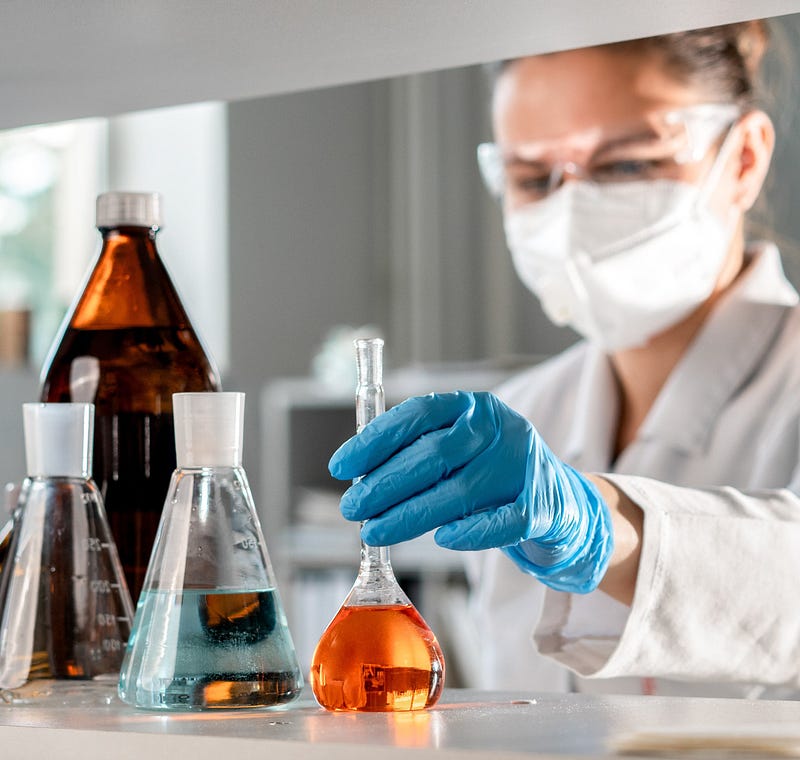The Promising Future of Age-Reversal Pills: A Scientific Breakthrough
Written on
Chapter 1: Introduction to Age-Reversal Research
In recent years, aging research has experienced a remarkable advancement with findings that suggest it may be possible to reverse aging chemically and rejuvenate cellular functions. A significant study spearheaded by Harvard Medical School’s Dr. David A. Sinclair has unveiled a revolutionary potential in the realm of anti-aging treatments. This discovery, which revolves around the use of specific chemical combinations to reverse cellular aging, has sparked excitement and speculation about the advent of an anti-aging pill that could transform our understanding of aging.
Age Reversal Pill Coming SOON? David Sinclair's NEW RESEARCH
The video explores the recent advancements in the development of an age-reversal pill, highlighting Dr. Sinclair's innovative research that may pave the way for effective anti-aging solutions.
Chemical Reprogramming: A New Approach
Traditionally, the scientific community has focused on gene therapy to combat aging, but this approach has proven to be intricate and difficult. However, recent findings from Harvard have introduced a novel strategy known as chemically induced reprogramming, which offers a straightforward and safer alternative for addressing cellular aging without the need for genetic alterations.
Section 1.1: The Study's Findings
The research, published in the journal Aging, details the team's exploration in discovering chemical combinations capable of revitalizing human cells. Building on the Nobel Prize-winning Yamanaka factors—genes that can convert adult cells into induced pluripotent stem cells (iPSCs)—the study seeks to unlock the potential of these versatile cells.

Induced pluripotent stem cells are unique as they can differentiate into various cell types, offering immense potential for regenerative medicine. However, their limited availability has historically hindered their application. Dr. Sinclair and his team have made strides in overcoming this barrier, successfully transforming ordinary adult cells into iPSCs, making their use more feasible.
Subsection 1.1.1: Breakthrough Discoveries
The research team has made significant progress by identifying six chemical mixtures capable of rejuvenating cells and genes within a week. These mixtures can restore cellular and genomic profiles while preserving cell identity, inching us closer to solutions for issues like uncontrolled cell proliferation and cancer risk.

This advancement in anti-aging and regenerative medicine merges genetic insights with chemical innovation and iPSCs, eliminating resource constraints and potentially leading to more effective and affordable treatments.
Section 1.2: Future Implications
The ramifications of this anti-aging breakthrough extend well beyond aesthetic concerns. The research anticipates a future where regenerative medicine plays a crucial role in addressing age-related diseases and degenerative conditions. Dr. Sinclair's team envisions a chemical alternative that could revolutionize treatment development, making it faster and more accessible.

Chapter 2: Societal and Economic Impact
The intriguing possibility of an anti-aging pill raises significant societal questions. If proven effective and safe for human use, this technology could radically alter our perception of aging. Longer health spans may shift societal standards, influencing everything from career paths to family structures.
The Most Exciting REAL Anti-Aging Drugs
This video discusses the latest developments in genuine anti-aging pharmaceuticals and their potential to change our lives.
Economic implications could also be profound, as a healthier, more active aging population may increase productivity, challenging existing retirement norms and workforce dynamics.
Addressing Concerns and Moving Forward
Despite the encouraging results from animal studies, caution persists regarding the long-term safety of these chemical treatments, particularly concerning cancer risks. Researchers emphasize the necessity of thorough human trials to substantiate the findings and guarantee the safety of any forthcoming anti-aging pill.
The recent Harvard study offers hope for a future where aging might be reversed with a single pill. While the journey to practical human application remains uncertain, the prospect of a groundbreaking anti-aging solution suggests that aging may no longer be an unchangeable process, but rather a journey we can traverse with renewed energy and vitality.

Disclaimer: Please note that this article was generated with the assistance of AI. English is my second language. Merci de votre compréhension :)